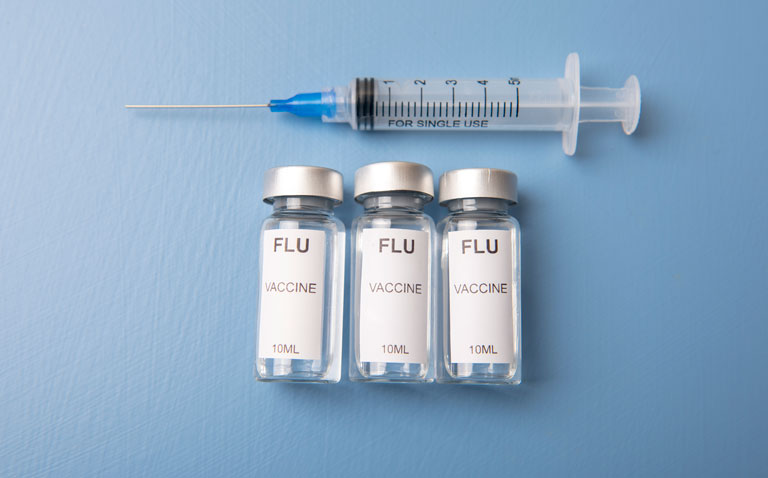A large retrospective study has revealed a reduction in adverse outcomes in COVID-19 patients previously vaccinated against influenza.
The influenza vaccination has an effectiveness ranging from 30 to 60% for the three different influenza strains. However, over the course of the COVID-19 pandemic, there have been emerging data that suggests influenza vaccination confers some level of protection against COVID-19. For example, one US study found that among those who had not received an influenza vaccination, there was a two-fold higher risk of hospitalisation because of COVID-19. A further study appeared to confirm that having received a flu vaccination, reduced the risk of testing positive for COVID-19. Part of the reason for a potentially protective effect after influenza vaccination is related to the presence of MF59, an oil-in-water immunogenic adjuvant which appears to induce higher levels of antigen-specific antibody levels and ultimately, better protection.
While some preliminary data would suggest that receipt of an influenza vaccine protects against infection with COVID-19, no studies have examined whether vaccination mitigates any of the adverse outcomes associated with COID-19 infection. Using a retrospective design, a team from the Division of Plastic and Reconstructive Surgery, University of Miami, Florida, US, used propensity matching to compare the incidence of adverse outcomes between influenza vaccinated and unvaccinated individuals who had tested positive for COVID-19. They used a de-identified database and focused on individuals who had either received a flu vaccination six months and two weeks prior to the onset of symptoms or not. The two-week period was included because this is the length of time required to acquire immunity after an influenza vaccination. Additional data collected included demographics and co-morbidities and used these to propensity-match the two cohorts. Adverse outcomes were assessed within 30, 60, 90 and 120 days after a positive COVID-19 test result.
Findings
Two propensity matched cohorts of 37,377 patients with a median age of 52.5 years (58% female) were included in the analysis. Compared with unvaccinated individuals 60 days after testing positive, COVID-19 patients who received the influenza vaccine experienced significantly less sepsis (risk ratio, RR = 1.38, 95% CI 1.17–1.63, p < 0.01) and stroke (RR = 1.45), admission to an intensive care unit (RR = 1.16) and deep vein thrombosis (RR = 1.53). Furthermore, there was an overall lower number of emergency department visits at 120 days after infection (RR = 1.28). However, mortality did not differ at any of the time points between the two cohorts.
In their conclusion, while accepting the limitation imposed by a retrospective design and the potential for errors in data coding, the authors called for this potential protective effect of influenza vaccination against adverse outcomes in those testing positive for COVID-19, to be validated in further studies.
Citation
Taghioff SM et al. Examining the potential benefits of the influenza vaccine against SARS-CoV-2: A retrospective cohort analysis of 74,754 patients. PloS ONE 2021










